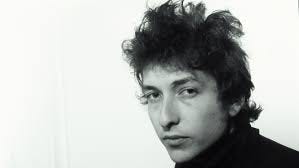Babe
Bobby, girls, and married two weeks.
What’s not to like.
(NOTE!!! I didn’t see the movie. This is not about the movie. I will see the movie maybe when it streams for free. This is not about the movie because I didn’t see the movie!!)
At nineteen, Bob arrives in New York and starts sponging up the phrasings and picking of other musicians. The dead thing in his eyes is what makes him butch, a…



